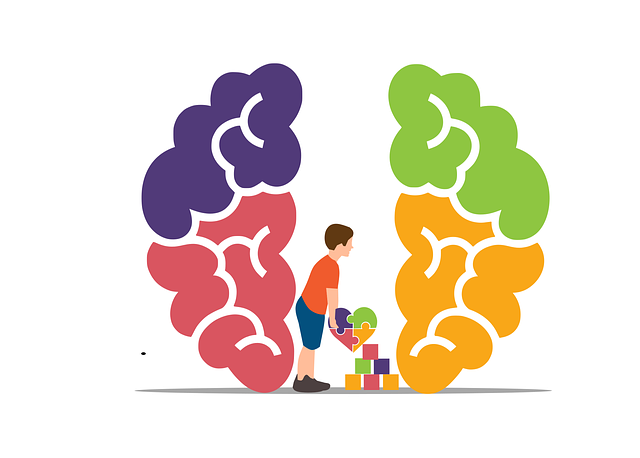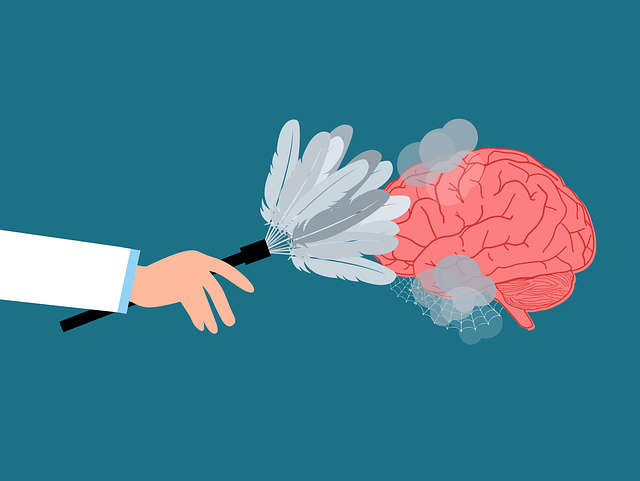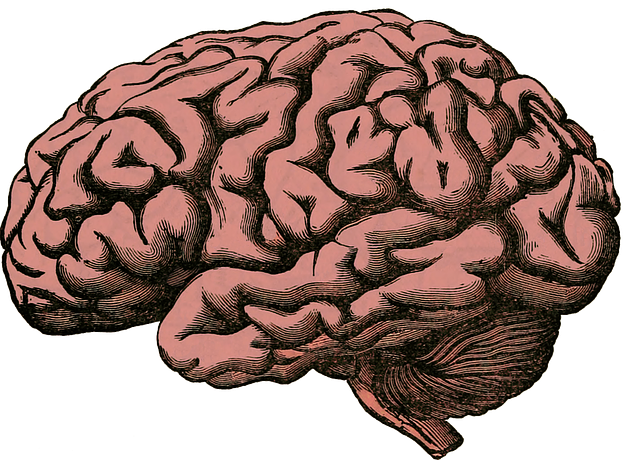Mental health professionals treating elderly clients face unique challenges, including complex interpersonal issues stemming from isolation, loss, and age-related cognitive changes. Effective risk management in therapy for elders involves a holistic approach: tailoring interventions, providing crisis guidance, building support networks, and encouraging robust self-care routines. This includes enhancing emotional intelligence, creating safe environments, integrating risk assessment frameworks, promoting open communication, and offering social skills training to mitigate risks and improve outcomes. Continuous monitoring and adaptability are crucial, with compassion cultivation practices aiding in early detection of behavioral changes through mental health awareness training.
“Mental health professionals navigating therapy for elders face distinct challenges, from understanding unique interpersonal issues inherent in elderly populations to identifying potential hazards within clinical settings. This article delves into comprehensive risk management planning, exploring critical aspects such as risk assessment frameworks and strategies for mitigating risks in practice. By addressing these topics, we aim to equip professionals with tools to enhance patient safety, particularly when confronting the complex interpersonal dynamics that often accompany elder care.”
- Understanding the Unique Risks in Elderly Mental Health Therapy
- Identifying Interpersonal Challenges and Potential Hazards
- Developing a Comprehensive Risk Assessment Framework
- Strategies for Mitigating Risks in Clinical Practice
- Continuous Monitoring and Adaptability in Risk Management
Understanding the Unique Risks in Elderly Mental Health Therapy

Mental health professionals working with elderly clients face distinct challenges and risks that require specialized attention. The therapeutic process with older adults often involves addressing complex interpersonal issues stemming from a lifetime of experiences, including social isolation, loss of loved ones, and age-related cognitive changes. These factors can significantly impact an elderly client’s emotional state and vulnerability. For instance, grief and loneliness are prevalent concerns, which, if left unaddressed, may escalate into more severe mental health crises.
Effective risk management in this context involves tailoring interventions to the unique needs of older adults. Crisis intervention guidance should be readily accessible for both the therapist and client. Building on their inner strength and fostering a supportive environment is key to successful therapy. Additionally, encouraging the development of robust self-care routines can empower elderly individuals to maintain their mental well-being. This holistic approach ensures that therapists are equipped to navigate the intricate landscape of elder care while promoting positive outcomes for their clients’ overall mental health.
Identifying Interpersonal Challenges and Potential Hazards

Mental health professionals often find themselves navigating complex interpersonal challenges when working with elderly clients. As therapy for elders becomes increasingly common, understanding and mitigating potential hazards is paramount. Interpersonal issues can range from resistance to treatment due to fear of vulnerability to caregiver stress and even abuse. These challenges demand careful consideration in risk management planning.
Emotional intelligence plays a crucial role in identifying and addressing these hazards. Enhancing emotional intelligence through confidence-boosting exercises and the development of coping skills can empower professionals to manage difficult situations effectively. By fostering a safe, non-judgmental environment, therapists can encourage clients to open up about their concerns, enabling proactive risk mitigation strategies that prioritize both client well-being and professional integrity.
Developing a Comprehensive Risk Assessment Framework

In the realm of mental health professional services, especially when focusing on therapy for elders, developing a robust risk assessment framework is paramount. This comprehensive approach should encompass not only identifying potential risks but also evaluating them within the context of interpersonal issues that frequently accompany aging. By integrating these considerations, practitioners can deliver more tailored and effective care. A well-structured framework facilitates early intervention, which is crucial in mitigating risks and enhancing overall therapeutic outcomes.
The process involves a meticulous evaluation of various factors, including societal trends, public awareness campaigns on mental wellness, and the development of self-care routine programs for older adults. By aligning risk management with these aspects, mental health professionals can stay abreast of emerging challenges and opportunities. Such proactive navigation ensures that interventions are not only timely but also aligned with current best practices, ultimately fostering a healthier and more supportive environment for both patients and practitioners.
Strategies for Mitigating Risks in Clinical Practice

In the realm of mental health practice, effectively managing risks is paramount to ensuring safe and therapeutic environments for both professionals and clients. For therapists specializing in therapy for elders, interpersonal issues often pose significant challenges. To mitigate these risks, several strategic approaches can be employed. One key strategy involves fostering open communication channels, encouraging clients to express concerns or distress promptly. This proactive approach allows mental health professionals to anticipate and address potential crises early on.
Additionally, integrating social skills training into therapeutic sessions can significantly enhance interpersonal dynamics. By facilitating better interaction and understanding between elders and their therapists, this technique not only improves the quality of care but also reduces misunderstandings that might otherwise escalate into risks. Mental illness stigma reduction efforts are equally crucial in creating a supportive atmosphere. Through education and awareness campaigns, professionals can dispel harmful stereotypes, fostering an environment where clients feel more comfortable discussing their issues openly, thereby facilitating effective coping skills development.
Continuous Monitoring and Adaptability in Risk Management

In the dynamic field of mental health care, particularly when treating elderly clients with complex interpersonal issues, continuous monitoring and adaptability are cornerstones of effective risk management planning. Therapy for elders often involves navigating delicate situations, where a client’s emotional state can fluctuate rapidly. Therefore, mental health professionals must adopt a vigilant approach, regularly assessing risks and adjusting treatment strategies accordingly. This iterative process ensures that care remains responsive to the evolving needs of the individual.
Integrating compassion cultivation practices within risk management enhances this adaptability. Mental health awareness training equips professionals with the sensitivity to detect subtle changes in client behavior or emotional cues. By fostering an environment of understanding and empathy, these practices enable caregivers to provide timely interventions, thereby minimizing potential risks. Such proactive measures are vital for maintaining a safe and supportive therapeutic space, especially when addressing interpersonal issues that may trigger vulnerability.
Mental health professionals working with elderly clients face distinct risks, from navigating complex interpersonal issues and potential hazards in therapy to ensuring continuous adaptability in risk management. By understanding these unique challenges, such as those arising from therapy for elders, developing a robust risk assessment framework, and implementing mitigation strategies, professionals can create a safer and more effective clinical practice environment. Continuous monitoring is key; regular reviews and adjustments ensure that the approach remains dynamic and responsive to the evolving needs of elderly clients and the complexities of interpersonal issues in mental health therapy.














